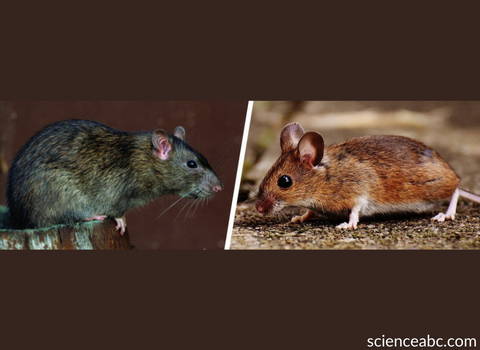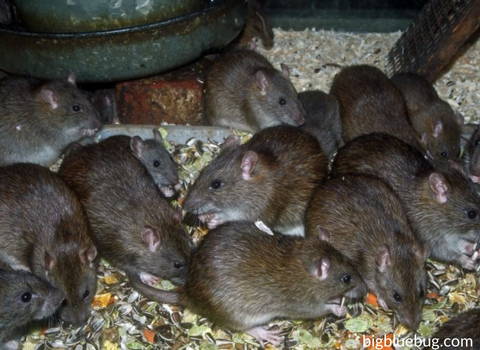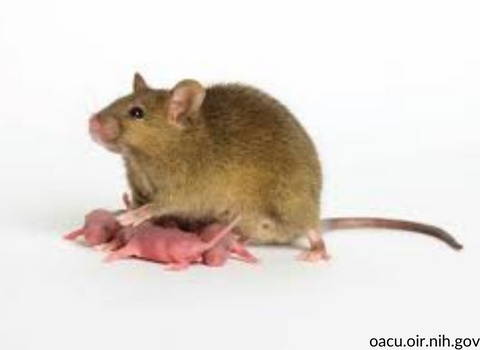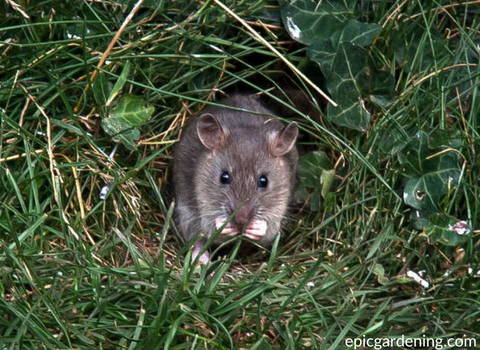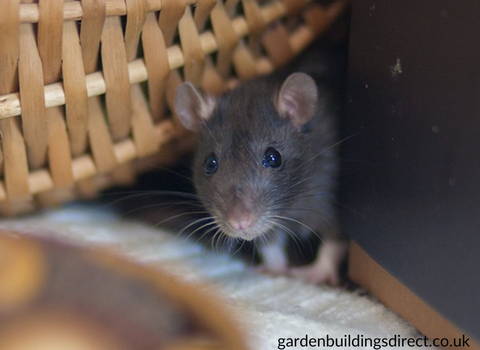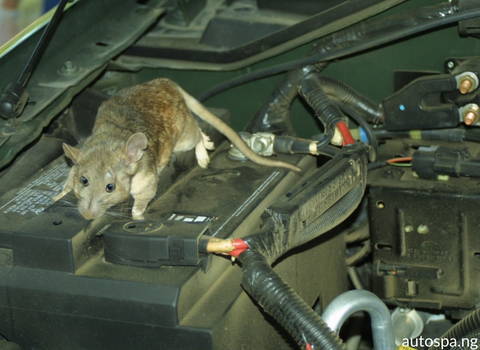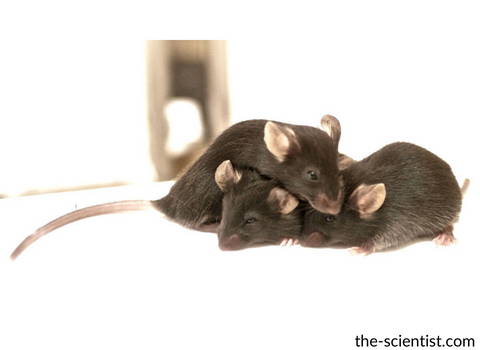Mouse vs Rat: What's the Difference?
The mouse and rat are two animals that share many similarities, but also have some key differences. A mouse is generally smaller than a rat, and they are often found in houses because they can enter the house through gaps as small as 3/8 of an inch.
Mice eat mostly seeds, plants, fruits, vegetables, while rats eat almost anything from plants to garbage to other rodents. Rats can live up to 2 years while mice only live for about 1 year on average. The mouse has very sharp teeth that allow it to chew through wood or plastic whereas a rat's teeth are blunter which makes them less effective at chewing.
Mice also reproduce at an extremely high rate, with a mouse population increasing by 15-20% in just one year. Rats are unable to breed as fast which makes them less of a threat for taking over the world (or your house).
Difference between Rats and Mice in Appearance
Size
The mouse is much smaller than the rat. The mouse can be as small as a few inches long, whereas the average length of a brown rat (the most common rat species) is about 16-18 inches from nose to rump and they weigh between 11 ounces up to just under three pounds.
Colour, Fur, Ears and Tails
A mouse has big ears while rats have smaller ones that are more rounded on top with hairless tails which are scaly and dark coloured at the base, but lighter at the tip; whereas mice have light bellies usually covered in fine hair along with white feet.
Mice also tend to look "fluffy" or soft because their fur often looks grayish especially when young whereas rats don’t seem fluffy.
Differences in Diet
A mouse is an omnivore, eating both plants and animals. They like sweet things, but also seeds and insects; whereas a rat is a true carnivorous animal (meaning they eat only meat) that eats bugs or other rodents, birds’ eggs, reptiles, or amphibians etc. as well as fruits and vegetables when available to them.
In the wild, rats will often try to take over mouse nests because of their ability to reproduce faster than mice can. Thus, giving them better chance at survival rates.
Rats are also able to enter homes through much smaller openings than mice due mainly because they do not have hair on their feet. Therefore, they cannot get caught up in holes with rough surfaces such as those found around window frames, whereas mouse feet do not slip due to the hair or claws.
Differences in Habitat and Life Cycle
Shelter
Mice prefer a temperate climate with year-round access to food, water, and shelter (meaning they don't mind if it is cold out). They will nest anywhere that provides them with enough room such as under decks, shrubs, storage sheds etc.; whereas rats can be found nesting outside but often choose warmer locations like crawl spaces or basements where there are no large predators around.
Rats also need an abundant supply of freshwater which means you may find their droppings near your sink drain; while mice only require about half as much water per day so therefore tend to have larger populations because of it.
The Difference Between a Rat and Mouse in Life Cycle
Mice breed year-round whereas rats do not. Mice can have anywhere from three to ten litters per year each consisting of four to seven young (pups) with an average gestation period of around 20 days; while a rat usually has between six and twelve pups in one litter, but only breed twice a year because their pregnancy lasts about 21 days instead of mouse's shorter 15 days.
Rat vs Mouse: Damages in the Garden
Rats can destroy your garden by digging up seeds and eating them before they have a chance to grow. As well as destroying vegetables while scavenging for food, chewing through plastic containers, or making holes in the ground where you plant things.
They are also known to carry diseases harmful to humans such as Hantavirus which is transmitted when mouse droppings dry out and become airborne; especially if disturbed like during cleaning of an infested area with mouse nests present.
Mice tend not to smear their feces around more often than that just leaving small piles here and there near nesting areas (which may be anywhere) but will also leave urine trails along walls etc.; whereas rats prefer to use one spot multiple times both indoors and outdoors so therefore usually leave behind larger patches of droppings as well as urine trails due to their larger size.
They will also eat and contaminate stored food with mouse feces but tend not to damage containers like they would if made from plastic; instead preferring wood or metal surfaces that can be chewed through easily (hence the need for mouse-proof storage).
Mice don't usually burrow into furniture unless it is something that has already been damaged in a way where an opening exists such as ripped fabric on upholstery or torn stuffing inside cushions etc.; whereas rats often gnaw holes big enough so that when entering your home, they can fit through small openings bigger than themselves thus being very destructive towards property especially anything wooden.
Mouse vs Rat: Damage Inside Your Home
Rats tend to gnaw away at any wooden beams, boards or supports around your home; but also eat into drywall and wiring. Mice are more likely to chew through plastic or insulation than wood unless they have found a way inside that can be chewed through such as damaged soffits etc., whereas rats will usually make their holes in places like this for easy access when looking for nesting sites within the attic.
They may even leave behind droppings near power sources if you find them gnawed on unplugged appliances since they would not want to get electrocuted from chewing too close (which is why mouse-proofing electrical outlets are still very important).
Rats are known carriers of diseases harmful to humans such as Hantavirus and Salmonella, whereas mouse droppings usually don't carry any major health risks for us. Mice can also transmit diseases but not nearly as many or severe, however, their urine is mostly to blame in this case since it will contaminate food sources if they have been urinating on them making contamination much more likely (which rats tend to do less often).
Mouse vs Rat: Damage Inside Your Vehicle
Rats are known to chew through wires causing you problems starting your car until the problem gets fixed; while mice prefer chewing holes into upholstery inside vehicles creating a mess that must be cleaned up properly before being able to use again. They may even create nests inside your vehicle which means having those removed by professional pest control companies who have the tools needed to get inside safely.
Mice can also be destructive if they find a way into your vehicle but tend to only chew through insulation or plastic components such as seat upholstery etc. Whereas rats are known for chewing completely through metal and wooden beams to gain access which could result in more serious damage being done than mouse droppings left behind on seats from nesting spots that were found within the engine bay or undercarriage after it was opened during repairs.
Rat vs Mouse: Damage to Your Property
Rats can cause massive amounts of property damage including tearing at wood, gnawing wires, eating drywall and wiring; while mice prefer making smaller holes and sometimes take food sources back with them to their nests to eat later.
They also are known for leaving behind mice droppings and urine trails which can carry disease, but mouse urine is what will contaminate food sources if they have been urinating on them so it's important to mouse-proof your home just as much (if not more) than rat-proofing since mice tend to get into smaller areas that rats cannot reach without making large holes first.
Handling Rats and Mice Pest Problems
When you notice that the infestation is no longer controllable, you can always resort to calling pest controllers. Pest control experts will determine the right pest control method to handle the infestation and permanently get rid of the rodents in your home.
You can also try using pest control products to prevent rats and mouse from continuously damaging parts of your home. We recommend the following:


